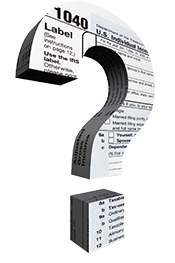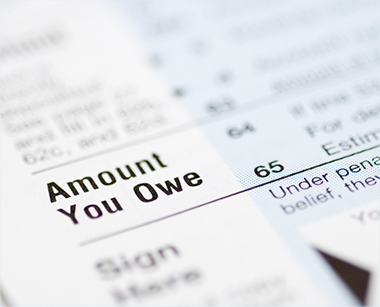5 Surprising Taxable Items
Wages and self-employment earnings are taxable, but what about the random cash or financial benefits you receive through other means? If something of value changes hands, you can bet the IRS considers a way to tax it. Here are five taxable items that might surprise you:
- Scholarships and financial aid. Applying for scholarships and financial aid are top priorities for parents of college-bound children. But be careful — if any part of the award your child receives goes toward anything except tuition, it might be taxable. This could include room, board, books, travel expenses or aid received in exchange for work (e.g., tutoring or research).

Tip: When receiving an award, review the details to determine if any part of it is taxable. Don’t forget to review state rules as well. While most scholarships and aid are tax-free, no one needs a tax surprise. - Gambling winnings. Hooray! You hit the trifecta for the Kentucky Derby. But guess what? Technically, all gambling winnings are taxable, including casino games, lottery tickets and sports betting. Thankfully, the IRS allows you to deduct your gambling losses (to the extent of winnings) as an itemized deduction, so keep good records.
Tip: Know when the gambling establishment is required to report your winnings. It varies by type of betting. For instance, the filing threshold for winnings from fantasy sports betting and horse racing is $600, while slot machines and bingo are typically $1,200. But beware, the gambling facility and state requirements may lower the limit.
- Unemployment compensation. Congress gave taxpayers a one-year reprieve in 2021 from paying taxes on 2020 unemployment income. Unfortunately, this tax break did not get extended for the 2021 tax year. So, unless Congress passes a law extending the tax break, unemployment will once again be taxable starting with your 2021 tax return.
Tip: If you are collecting unemployment, you can either have taxes withheld and receive the net amount or make estimated payments to cover the tax liability.
- Social Security benefits. If your income is high enough after you retire, you could owe income taxes on up to 85% of Social Security benefits you receive.
Tip: Consider if delaying when you start collecting Social Security benefits makes sense for you. Waiting to start benefits means you’ll avoid paying taxes on your Social Security benefits for now, plus you’ll get a bigger payment each month you delay until you reach age 70.
- Alimony. Prior to 2019, alimony was generally deductible by the person making alimony payments, with the recipient generally required to report alimony payments received as taxable income. Now the situation is flipped: For divorce and separation agreements executed since December 31, 2018, alimony is no longer deductible by the payer and alimony payments received are not reported as income.
Tip: Alimony payments no longer need to be made in cash. Consider having the low-income earning spouse take more retirement assets such as 401(k)s and IRAs in exchange for reduced alimony payments. This arrangement would allow the higher-earning spouse to make alimony payments by transferring retirement funds without paying income taxes on it.
When in doubt, it’s a good idea to keep accurate records so your tax liability can be correctly calculated and you don’t get stuck paying more than what’s required.


 With the April 15 tax filing deadline right around the corner, here are answers to some common tax questions.
With the April 15 tax filing deadline right around the corner, here are answers to some common tax questions. Wages and self-employment earnings are taxable, but what about the random cash or financial benefits you receive through other means? If something of value changes hands, you can bet the IRS considers a way to tax it. Here are five taxable items that might surprise you:
Wages and self-employment earnings are taxable, but what about the random cash or financial benefits you receive through other means? If something of value changes hands, you can bet the IRS considers a way to tax it. Here are five taxable items that might surprise you:
 As the end of the year approaches, there is still time to make moves to manage your tax liability. Here are some ideas to consider.
As the end of the year approaches, there is still time to make moves to manage your tax liability. Here are some ideas to consider.